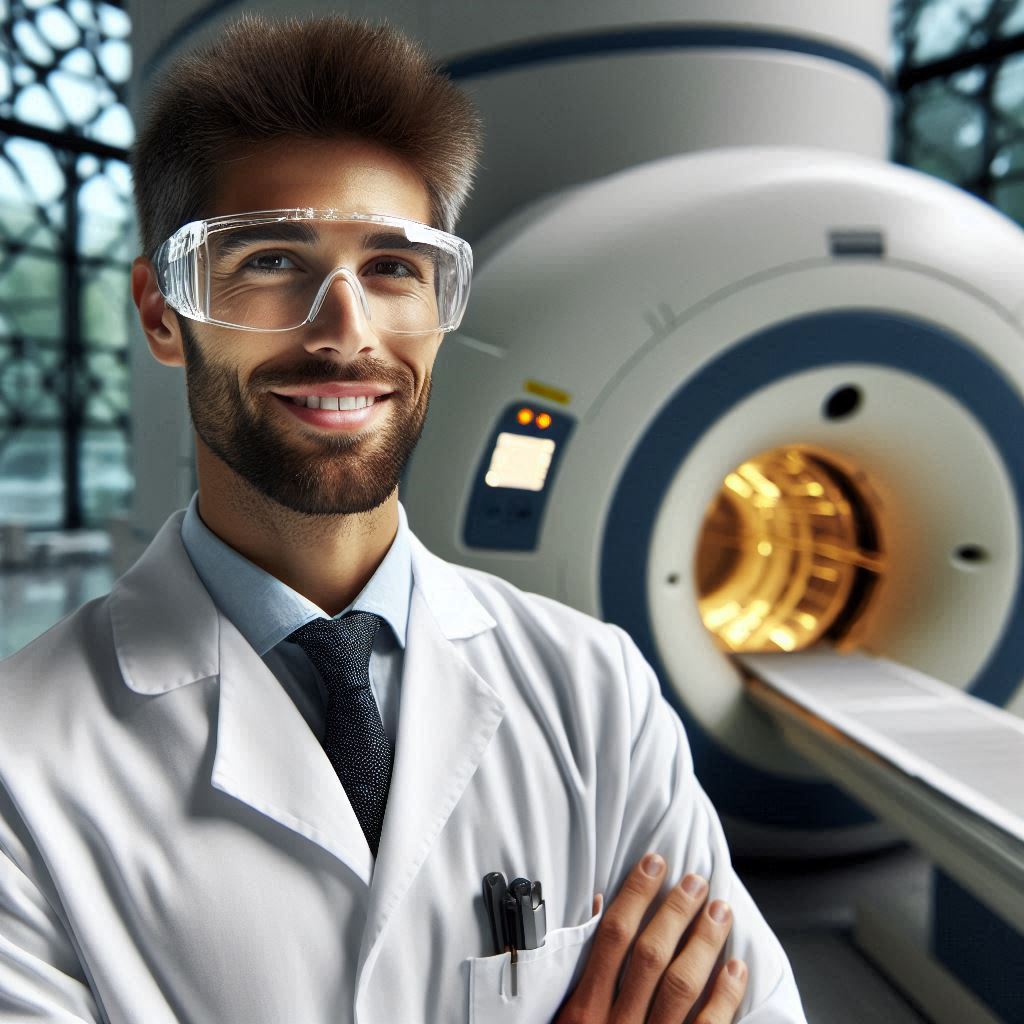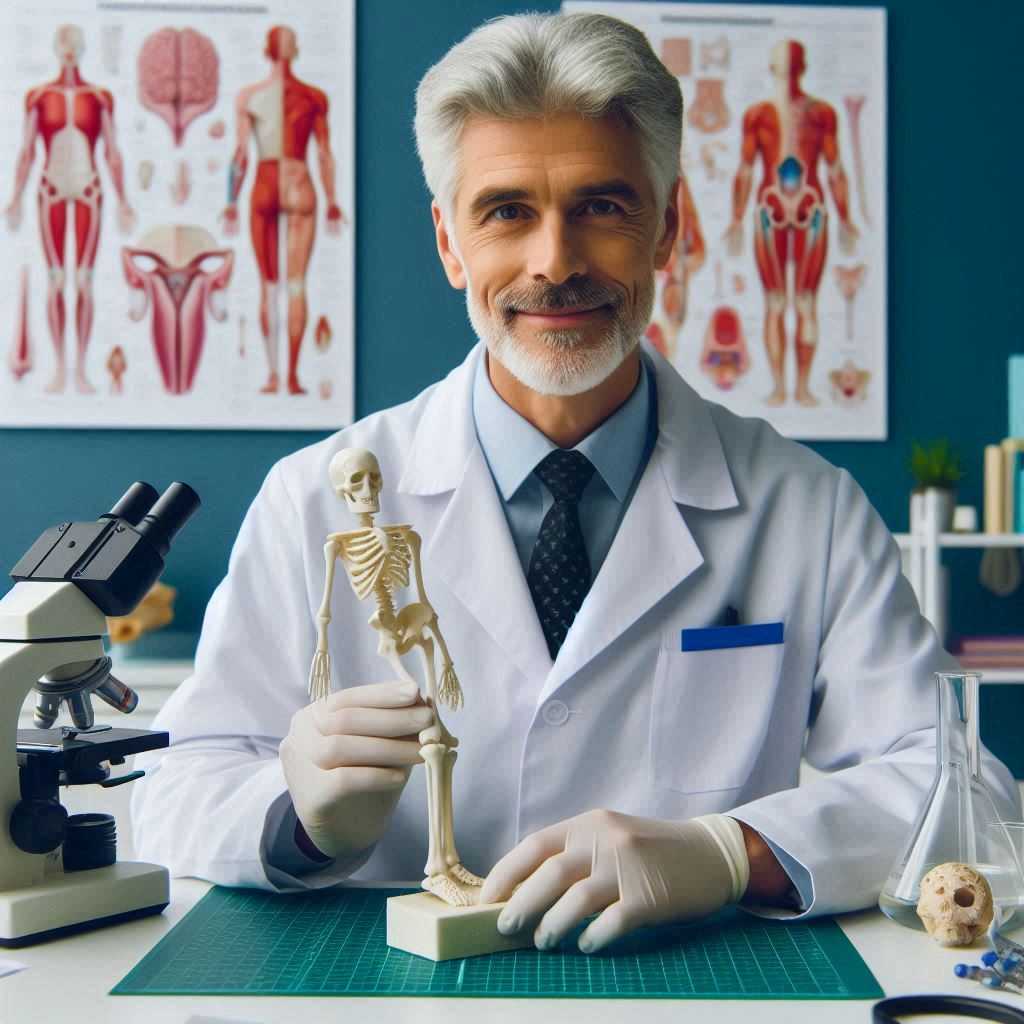Introduction
Workplace etiquette for nuclear medicine technologists holds paramount importance. Proper behavior fosters a professional environment.
Respect for colleagues and patients builds trust and cooperation. Following etiquette guidelines ensures smooth daily operations.
Good manners reflect positively on the entire team.
Maintaining a professional demeanor enhances patient comfort and confidence. Patients often feel anxious about medical procedures.
A respectful, courteous attitude can alleviate their stress. Clear communication plays a key role in patient interactions.
Using polite language and maintaining eye contact demonstrates care and respect.
Proper etiquette also improves team dynamics. Respectful communication among colleagues prevents misunderstandings and conflicts.
It encourages a collaborative atmosphere where everyone feels valued. This cooperation enhances efficiency and job satisfaction.
Team members who respect each other work more harmoniously.
Adhering to workplace etiquette contributes to a positive work environment. A courteous workplace reduces stress and increases morale.
Everyone feels more comfortable and motivated. This positive atmosphere can lead to better patient care outcomes.
In summary, workplace etiquette is essential for nuclear medicine technologists. It creates a respectful, professional environment.
Proper behavior improves patient interactions and boosts team cooperation. Adhering to etiquette enhances job satisfaction and overall efficiency.
This focus on respectful conduct ultimately benefits both staff and patients.
Dress Code
Following the dress code in a healthcare setting is crucial for maintaining professionalism.
Wear appropriate attire like scrubs and closed-toe shoes to meet safety and hygiene standards.
Professional appearance reflects competence, reliability, and respect for patients and colleagues.
Why Dress Code Matters
- Adherence to dress code guidelines ensures a standardized and uniform look among staff.
- Patient perception is influenced by how technologists present themselves in the workplace.
- Proper attire sets the tone for a positive and professional atmosphere in the nuclear medicine department.
Tips for Dressing Appropriately
- Choose comfortable and well-fitting scrubs that comply with facility-specific color codes.
- Avoid wearing excessive jewelry or strong fragrances that may distract or discomfort patients.
- Keep hair neatly groomed and tied back if necessary to maintain a clean and tidy appearance.
Footwear Considerations
- Opt for closed-toe shoes with good support to prevent injuries and exposure to hazardous materials.
- Avoid high heels or open shoes that may pose a safety risk in a busy healthcare environment.
- Select shoes that are easy to clean and maintain hygiene standards in the workplace.
Maintaining Professionalism
- Professionalism extends beyond attire; it includes behavior, communication, and interpersonal skills.
- Respect the privacy and dignity of patients by maintaining confidentiality and empathy in your interactions.
- Be punctual, reliable, and accountable for your actions to build trust with colleagues and supervisors.
Following dress code guidelines is essential for nuclear medicine technologists to uphold professionalism.
By dressing appropriately and maintaining a professional demeanor, you contribute to a positive work environment.
Read: Top Schools for Orthopedic Technologist Programs
Transform Your Career Today
Unlock a personalized career strategy that drives real results. Get tailored advice and a roadmap designed just for you.
Start NowCommunication
Importance of clear and effective communication in the workplace
- Clear and effective communication is crucial in the workplace to ensure smooth operations.
- As nuclear medicine technologists, you must communicate clearly with colleagues, patients, and other healthcare professionals.
- When communicating with colleagues, always be respectful and professional in your interactions.
- Use a friendly and approachable tone to foster positive relationships with your coworkers.
- Be open to feedback and constructive criticism to improve your communication skills.
Tips for Effective Communication
- Listen actively to what others are saying without interrupting them.
- Ask clarifying questions to ensure you understand the message correctly.
- Use simple and concise language to convey your thoughts clearly.
- Be mindful of your non-verbal cues such as body language and facial expressions.
- Avoid distractions when having important conversations with colleagues or patients.
Importance of Active Listening
- Active listening is essential in a medical setting to ensure patient safety and accuracy in procedures.
- By listening attentively to patients, you can gather important information about their medical history and concerns.
- Active listening also helps in building trust and rapport with patients, making them feel heard and valued.
- When communicating with other healthcare professionals, active listening can prevent misunderstandings and errors.
- Practice empathy and show genuine interest in what others have to say to foster a positive work environment.
Respectful Communication
- Respect is key in all interactions, especially in a medical setting where patients’ well-being is at stake.
- Acknowledge the expertise of your colleagues and collaborate effectively for the best patient outcomes.
- Avoid using jargon or technical terms that might confuse patients or other non-medical staff.
- Be patient and understanding when communicating with patients who may be anxious or in pain.
- Remember to maintain confidentiality at all times and respect patients’ privacy during discussions.
In fact, effective communication, active listening, and respectful communication are essential skills for nuclear medicine technologists to excel in their roles.
By practicing these principles, you can enhance the quality of patient care and strengthen professional relationships in the workplace.
Read: Guide to Nuclear Medicine Technologist Job Applications
Confidentiality
Importance of Maintaining Patient Confidentiality
Privacy is crucial in healthcare to build trust with patients and protect sensitive information.
As nuclear medicine technologists, it is our responsibility to safeguard patient data to maintain professional ethics and legal standards.
Guidelines for Handling Sensitive Information
Always obtain informed consent from patients before sharing any medical details with colleagues.
Utilize secure communication channels for discussing patient cases and avoid disclosing unnecessary information in public areas.
Secure Handling of Patient Records
Keep physical patient records locked when not in use and dispose of them properly when no longer needed.
When accessing electronic records, log out of the system after each use and report any suspicious activity immediately.
Consequences of Breaching Patient Confidentiality
Violating patient confidentiality can lead to legal actions, loss of job, and damage to professional reputation.
It can also compromise patient trust and result in negative outcomes for the workplace, such as lawsuits and disciplinary actions.
Impact of Breaching Patient Confidentiality
A breach of patient confidentiality can have far-reaching consequences, including loss of patient trust, damaged reputation for the nuclear medicine department, and potential legal repercussions.
It can also affect team morale and lead to a toxic work environment.
It is essential for nuclear medicine technologists to prioritize patient confidentiality and follow established protocols to protect sensitive information.
By adhering to strict confidentiality guidelines, technologists can ensure the trust and respect of their patients and colleagues while upholding professional standards in the workplace.
Read: Nuclear Medicine Technologist: Myths vs. Reality

Time Management
Importance of time management for nuclear medicine technologists
Time management is a crucial skill for nuclear medicine technologists as they work in a fast-paced environment where efficiency is key.
Successful completion of tasks within designated timeframes is essential to ensure smooth workflow and patient care.
Tips on prioritizing tasks and staying organized in a fast-paced work environment
- Make a to-do list: List all tasks in order of importance.
- Set deadlines: Allocate specific timeframes to each task.
- Delegate when necessary: Don‘t hesitate to ask for help if overwhelmed.
- Keep work area tidy: A clean workspace enhances productivity.
- Utilize technology: Use digital tools to track appointments and deadlines.
- Avoid multitasking: Focus on one task at a time to avoid errors and delays.
Importance of being punctual and reliable in the workplace
- Arrive on time: Being punctual demonstrates professionalism.
- Meet deadlines: Completing tasks within set timelines is crucial for patient care.
- Communicate delays: If unforeseen circumstances arise, inform colleagues promptly.
Read: Counseling Approaches for Different Types of Substance Abuse
Showcase Your Business Today
Reach thousands of readers actively exploring professional services. Publish your business profile and grow your audience now.
Publish NowTeamwork
Teamwork is crucial in the field of nuclear medicine as it enhances overall efficiency and patient care.
Here are some tips on how nuclear medicine technologists can collaborate effectively with their colleagues:
Communication is Key
Open and clear communication is essential for effective teamwork.
Technologists should communicate clearly with their team members to ensure that everyone is on the same page and working towards a common goal.
Respect Each Other’s Roles
It’s important for nuclear medicine technologists to respect the roles and responsibilities of their colleagues.
Each team member brings a unique set of skills and knowledge to the table, and acknowledging and respecting these contributions is essential for a cohesive team.
Foster a Positive Work Environment
A positive work environment is essential for effective teamwork.
Technologists should strive to create a supportive and respectful atmosphere where team members feel valued and motivated to perform at their best.
Collaborate on Patient Care
Collaboration on patient care is crucial in nuclear medicine.
Technologists should work together to ensure that patients receive the best possible care and outcomes.
This may include sharing information, problem-solving together, and supporting each other in challenging situations.
Recognize and Celebrate Achievements
Recognizing and celebrating achievements within the team can boost morale and motivation.
Technologists should take the time to acknowledge and appreciate their colleagues’ hard work and successes, as this can strengthen team cohesion and foster a positive work culture.
In short, teamwork plays a vital role in nuclear medicine and healthcare in general.
By following these tips and fostering a collaborative work environment, nuclear medicine technologists can work effectively with their colleagues to improve patient care and outcomes.
Delve into the Subject: Healthcare Policy Development by Public Health Administrators
Professionalism
Importance of professionalism in the workplace for nuclear medicine technologists
Professionalism is essential in the workplace for nuclear medicine technologists as it reflects their commitment to high standards and ethical behavior.
Having a positive attitude is key to professionalism, as it creates a welcoming environment for colleagues and patients.
Being approachable allows for effective communication and collaboration with team members, fostering a harmonious work environment.
Practicing good work ethics, such as punctuality and diligence, demonstrates reliability and dedication to patient care.
Impact of professionalism on career advancement and reputation in the healthcare industry
Professionalism also plays a crucial role in the career advancement of nuclear medicine technologists.
Individuals who exhibit professionalism are more likely to be considered for leadership roles and opportunities for professional growth.
Building a reputation for professionalism in the healthcare industry can lead to increased trust from patients and colleagues.
Employers value professionalism as it contributes to a positive work culture and reflects well on the organization.
Overall, professionalism is a cornerstone of success for nuclear medicine technologists in their careers and relationships within the healthcare industry.
Conflict Resolution
Resolving conflicts in a professional and respectful manner is crucial in the workplace.
Failure to do so can lead to tension, decreased productivity, and a negative work environment.
Importance of Resolving Conflicts
- Improves communication
- Strengthens relationships
- Enhances teamwork
- Boosts morale
- Increases job satisfaction
- Promotes a positive work culture
Tips for Handling Conflicts
- Remain calm and composed
- Listen actively to the other party
- Express your thoughts and feelings clearly
- Seek common ground for compromise
- Avoid blaming or personal attacks
- Focus on finding solutions
- Consider seeking a mediator if necessary
Benefits of Addressing Conflicts Promptly
- Prevents escalation of issues
- Preserves relationships
- Promotes a harmonious work environment
- Enhances overall productivity
- Ensures a positive reputation for the organization
- Boosts employee morale and job satisfaction
By following these tips and understanding the importance of resolving conflicts promptly and effectively, nuclear medicine technologists can foster a positive work environment and maintain professional relationships with colleagues and patients.
Conclusion
Nuclear medicine technologists should maintain professionalism at all times. Politeness and respect towards colleagues and patients are essential.
Adhering to dress codes ensures a professional appearance. Punctuality reflects commitment and reliability in the workplace.
Clear communication prevents misunderstandings and errors. Listening actively to patients’ concerns builds trust and rapport.
Maintaining confidentiality respects patients’ privacy and dignity. Proper handling of equipment demonstrates competence and responsibility.
Following safety protocols protects everyone in the workplace. Reporting any issues promptly helps maintain a safe environment.
Teamwork enhances efficiency and job satisfaction. Offering help to colleagues fosters a supportive atmosphere.
Being adaptable to changes in procedures shows flexibility and willingness to learn. Keeping a positive attitude improves the overall work environment.
Continuous professional development ensures up-to-date knowledge and skills. Respecting different cultures and backgrounds promotes inclusivity and harmony.
Properly documenting procedures ensures accuracy and accountability. Adhering to ethical guidelines maintains the integrity of patient care.
Following workplace etiquette guidelines contributes to a positive work environment. It also ensures the delivery of high-quality patient care.
Every action taken by a nuclear medicine technologist impacts the patient experience. Adhering to etiquette fosters professionalism and respect.
It also helps to create a safe, efficient, and harmonious workplace.
Showcase Your Business Today
Reach thousands of readers actively exploring professional services. Publish your business profile and grow your audience now.
Publish NowUltimately, maintaining good workplace etiquette enhances the reputation and trustworthiness of the nuclear medicine department.
[E-Books for Sale]
The Big Book of 500 High-Paying Jobs in America: Unlock Your Earning Potential
$19.99 • 500 High-Paying Jobs • 330 pages
Explore 500 high-paying jobs in America and learn how to boost your career, earn more, and achieve success!
See All 500 High-Paying Jobs of this E-Book
1001 Professions Without a Degree: High-Paying American Jobs You Can Start Now
$19.99 • 1001 Professions Without a Degree • 174 pages
Discover 1001 high-paying jobs without a degree! Unlock career tips, skills, and success strategies for just $19.99!




